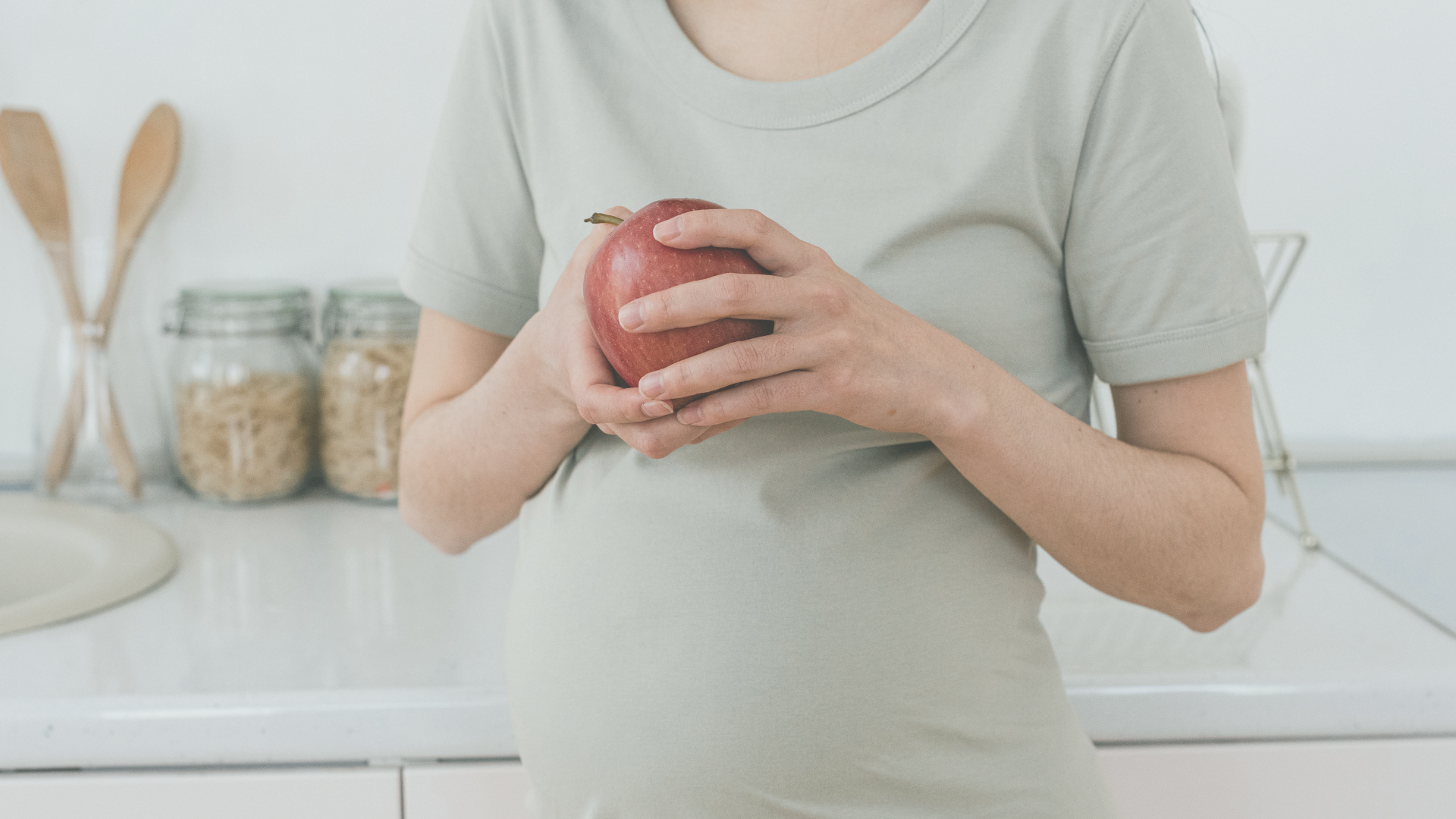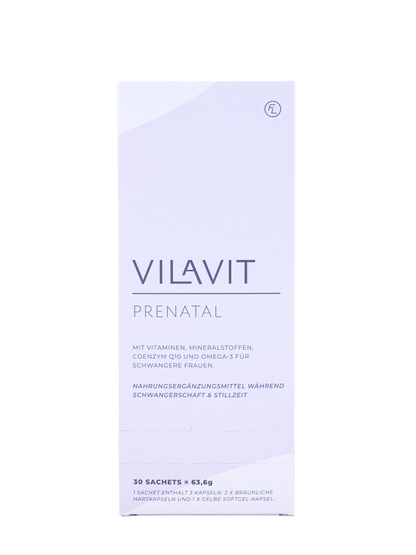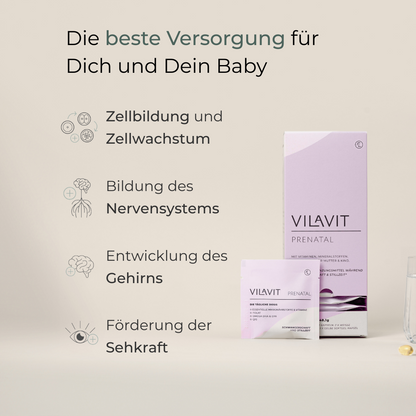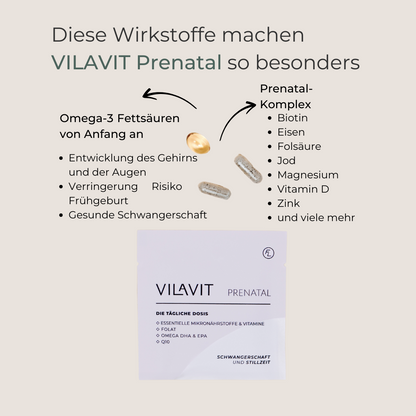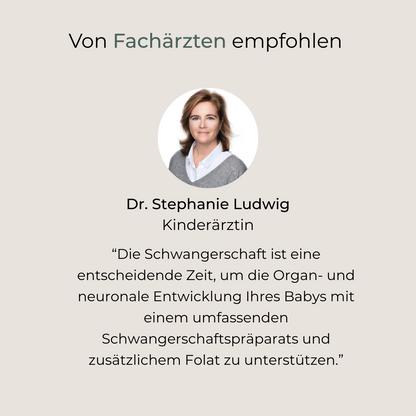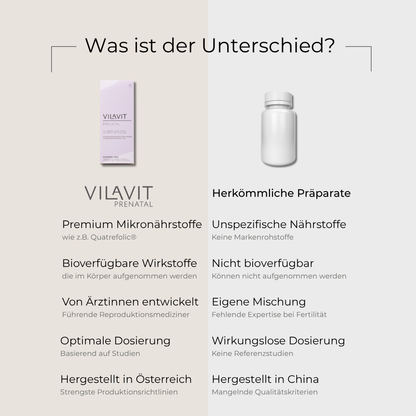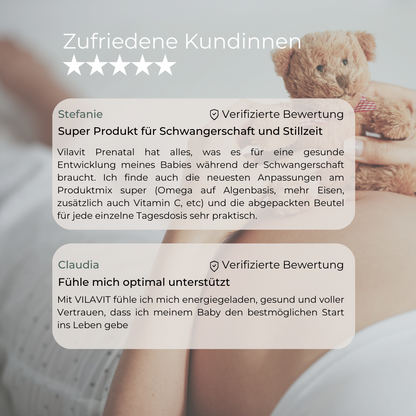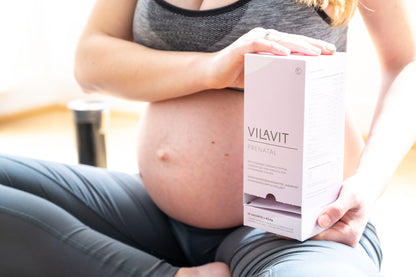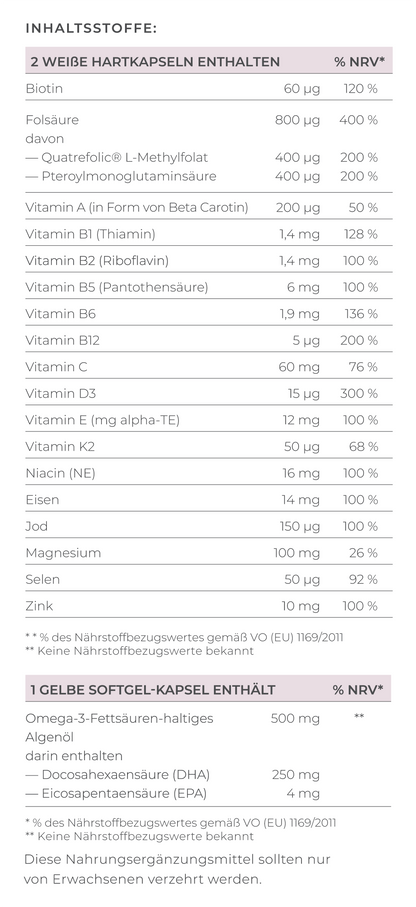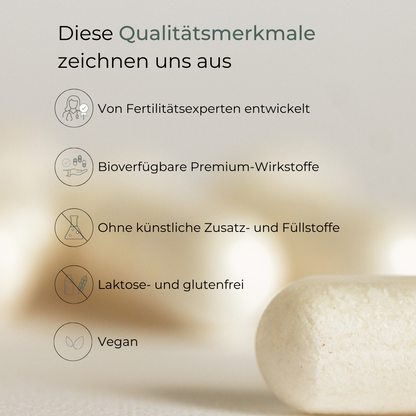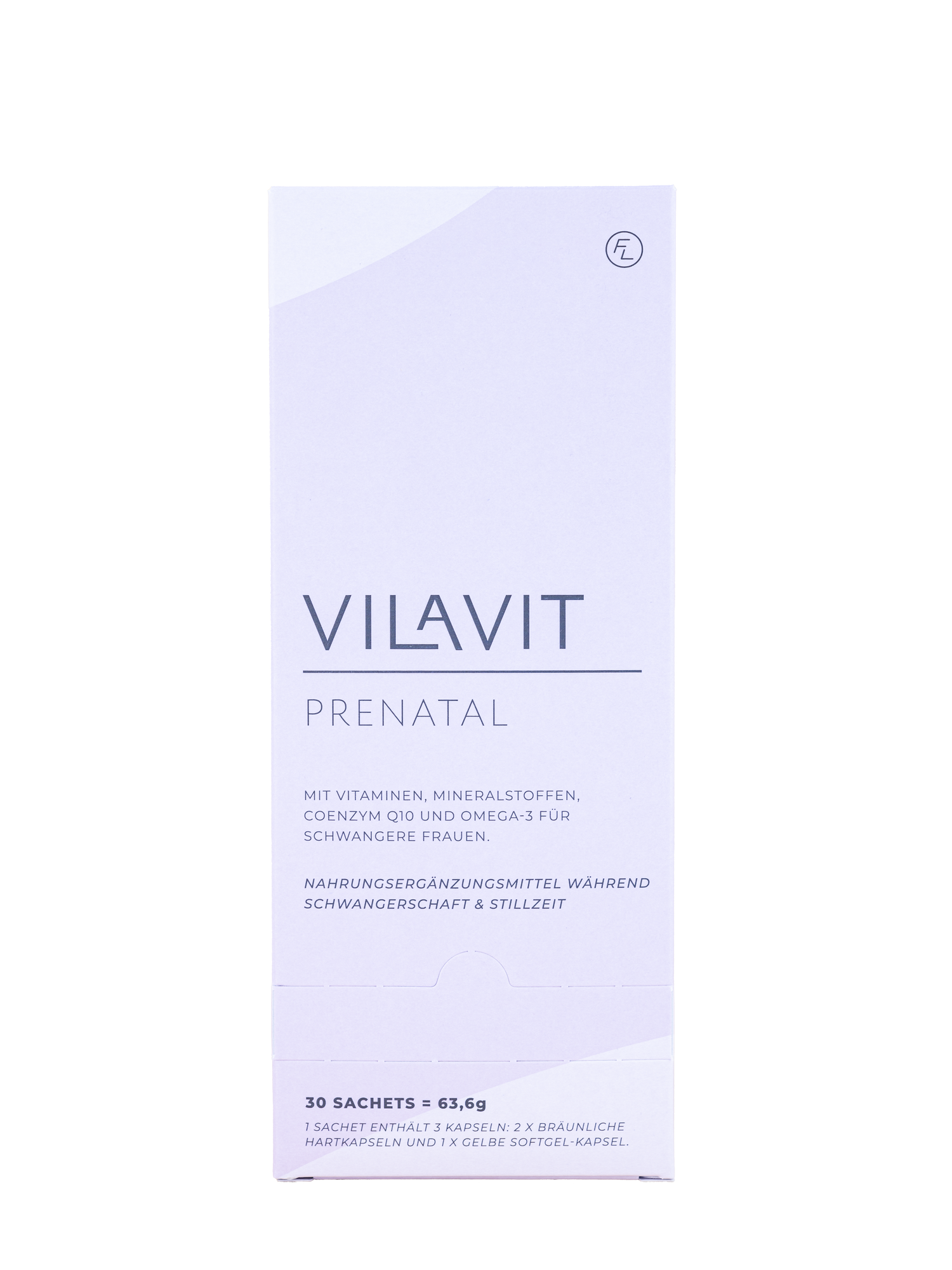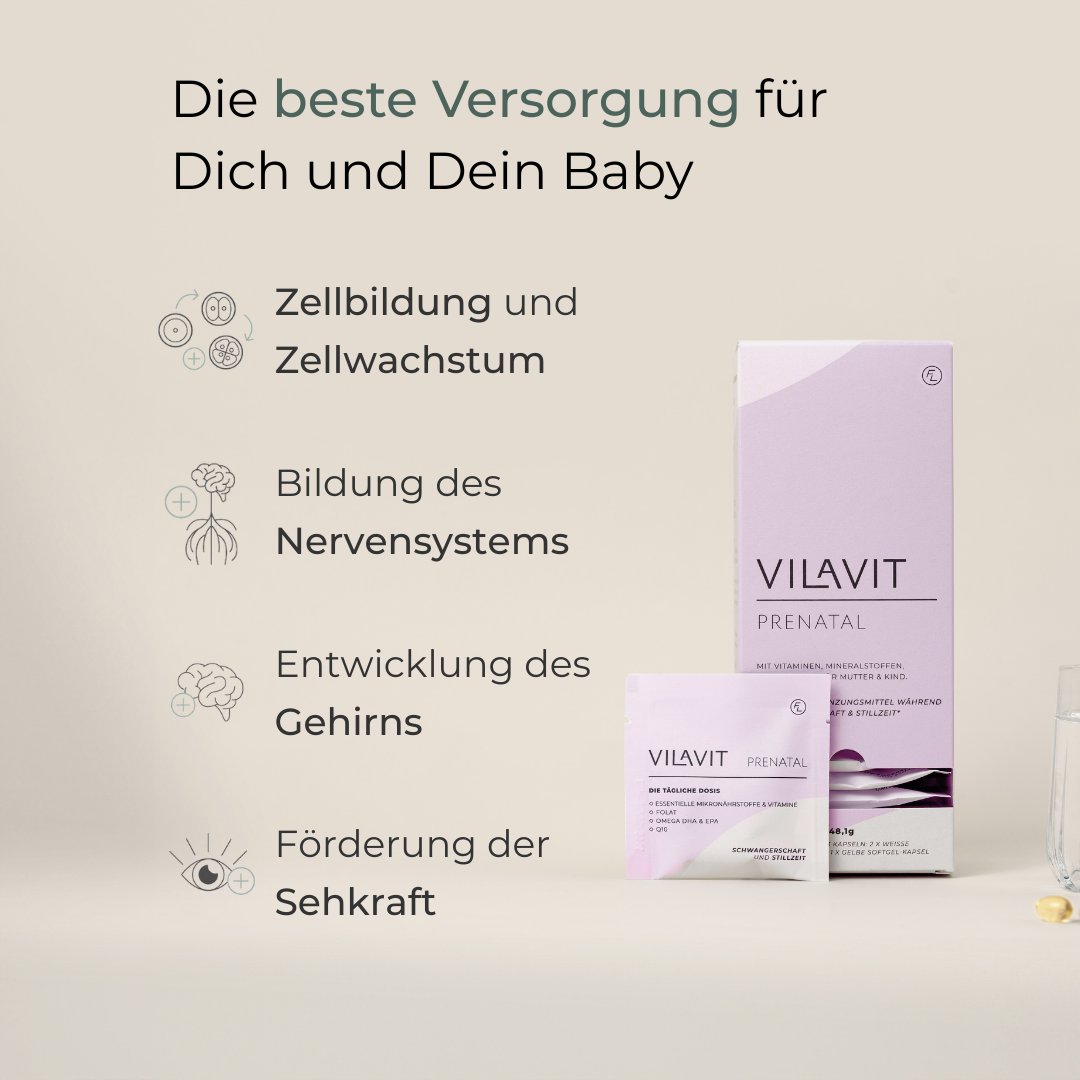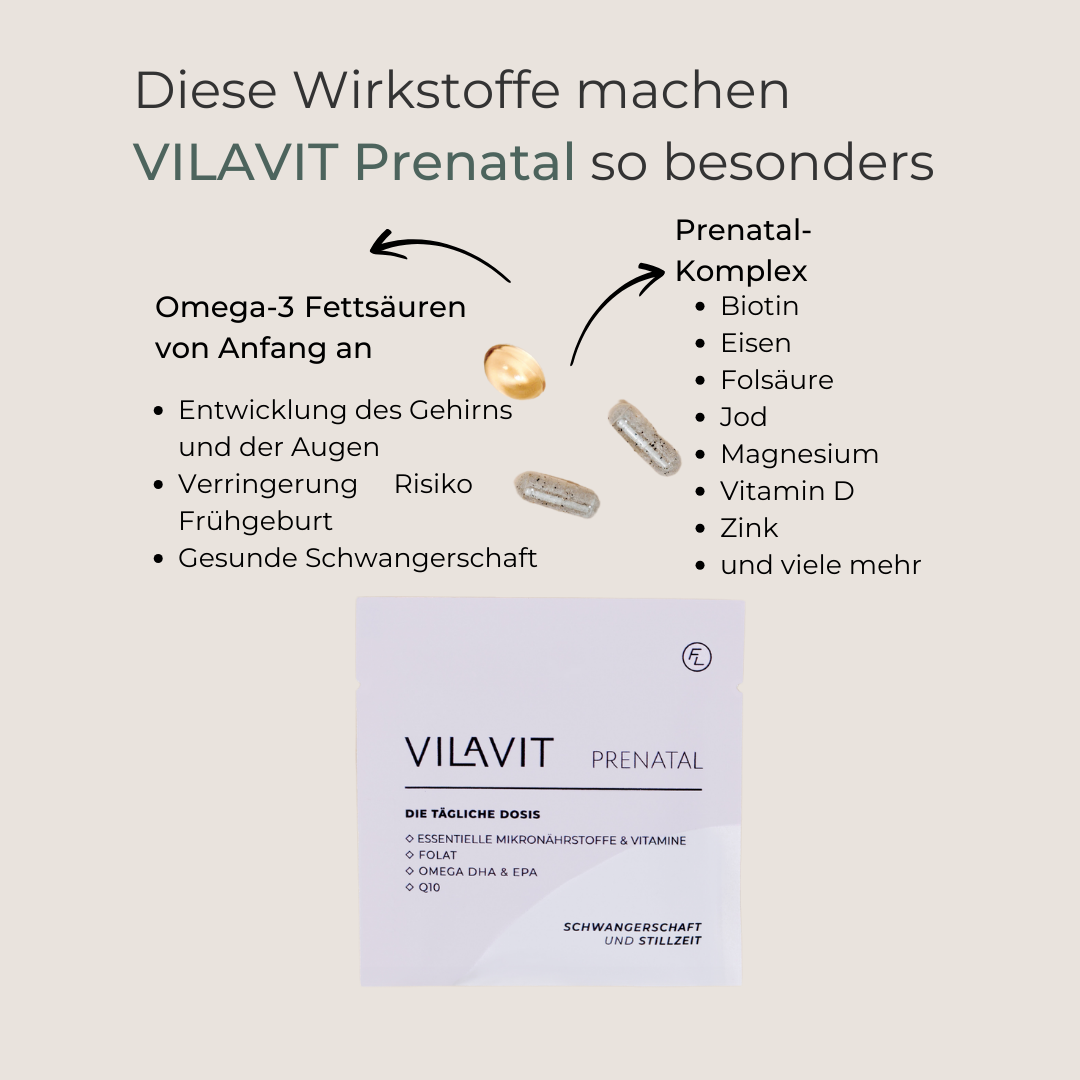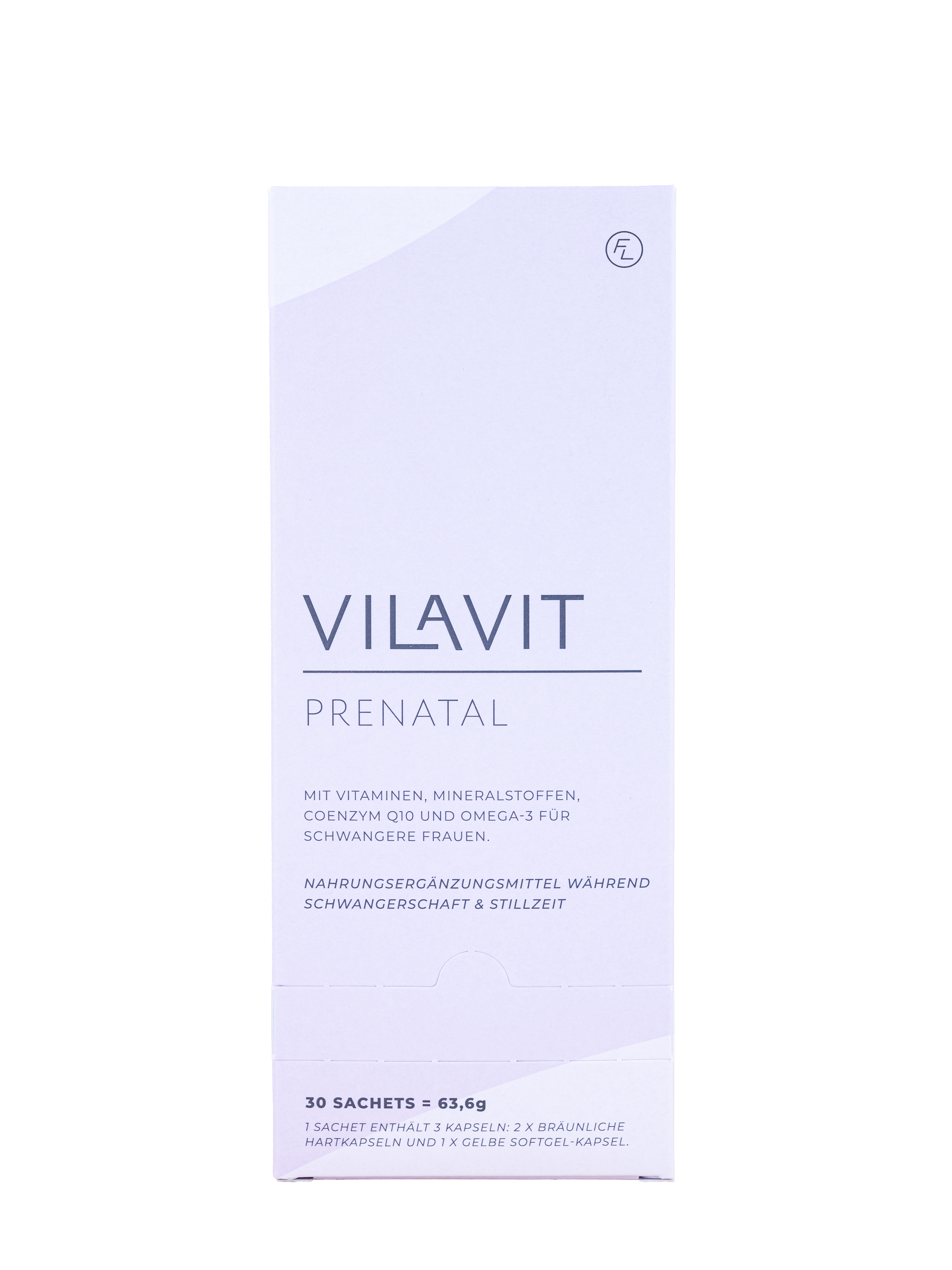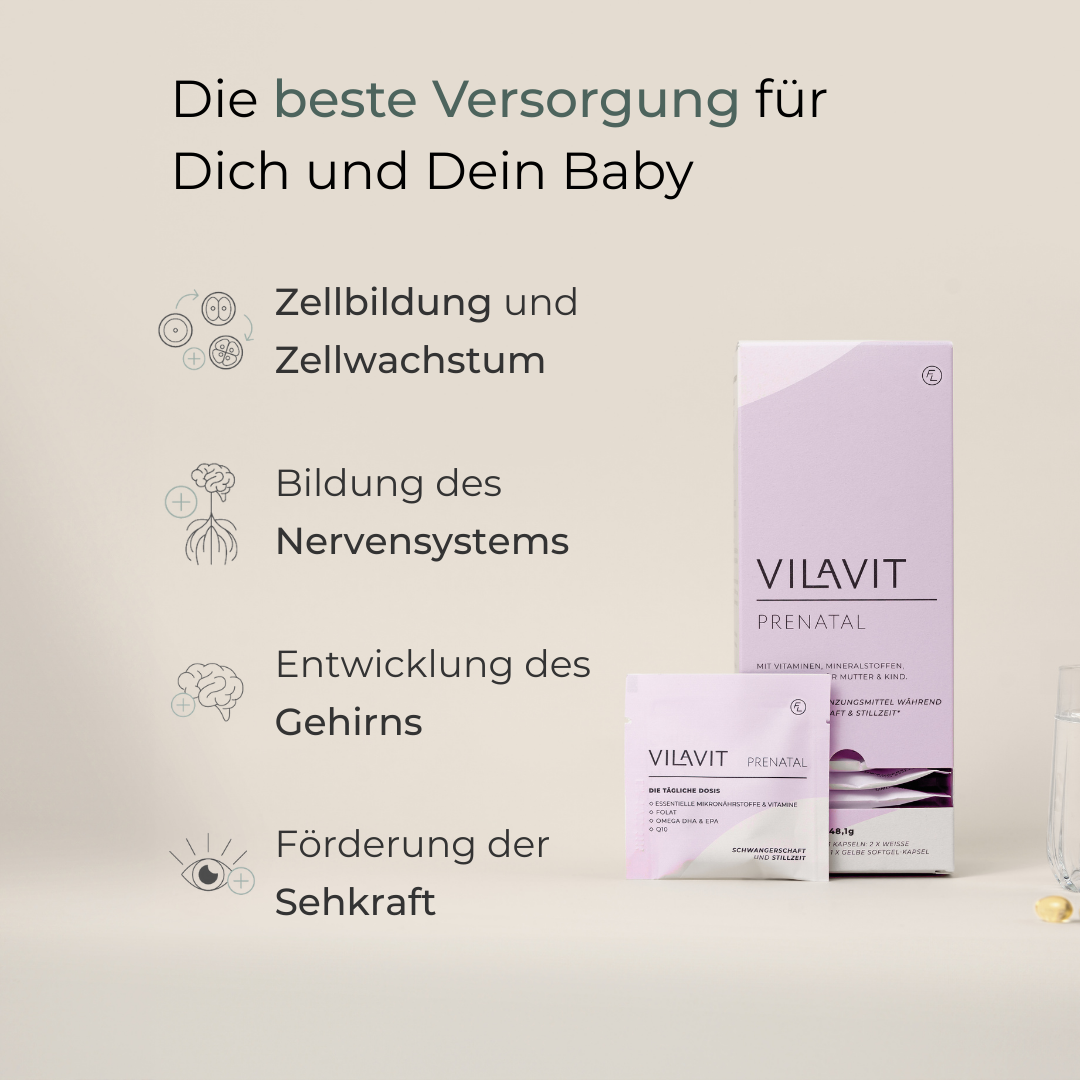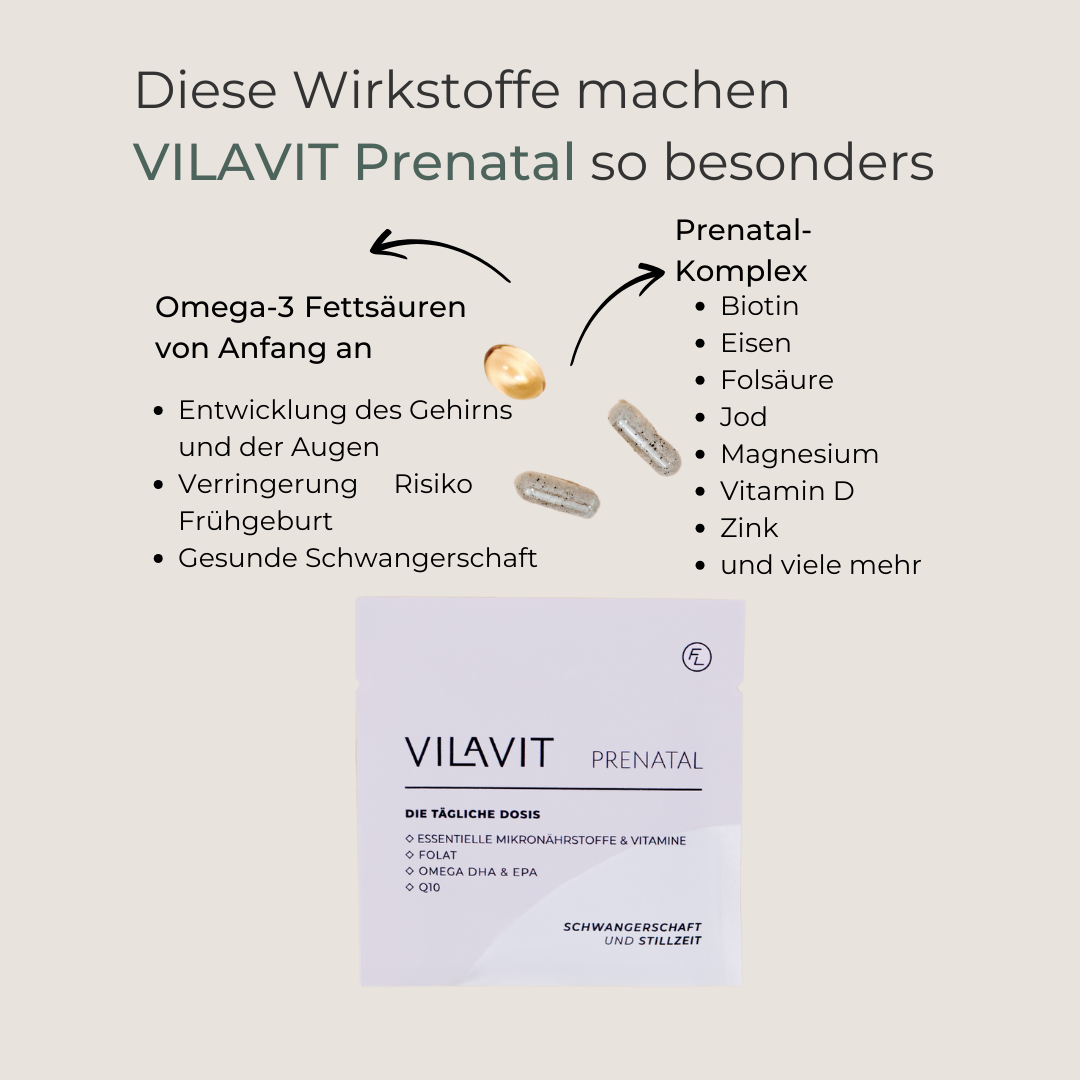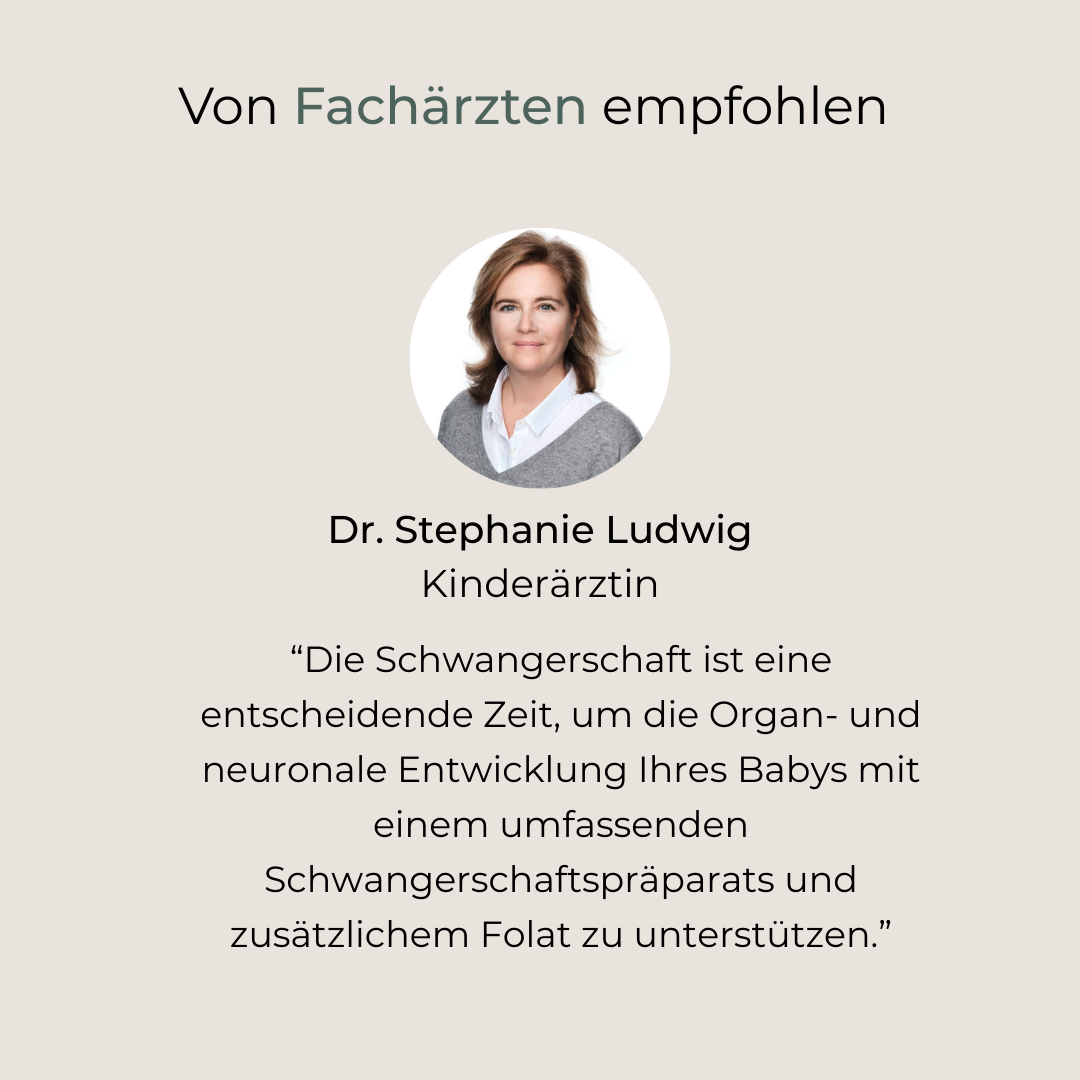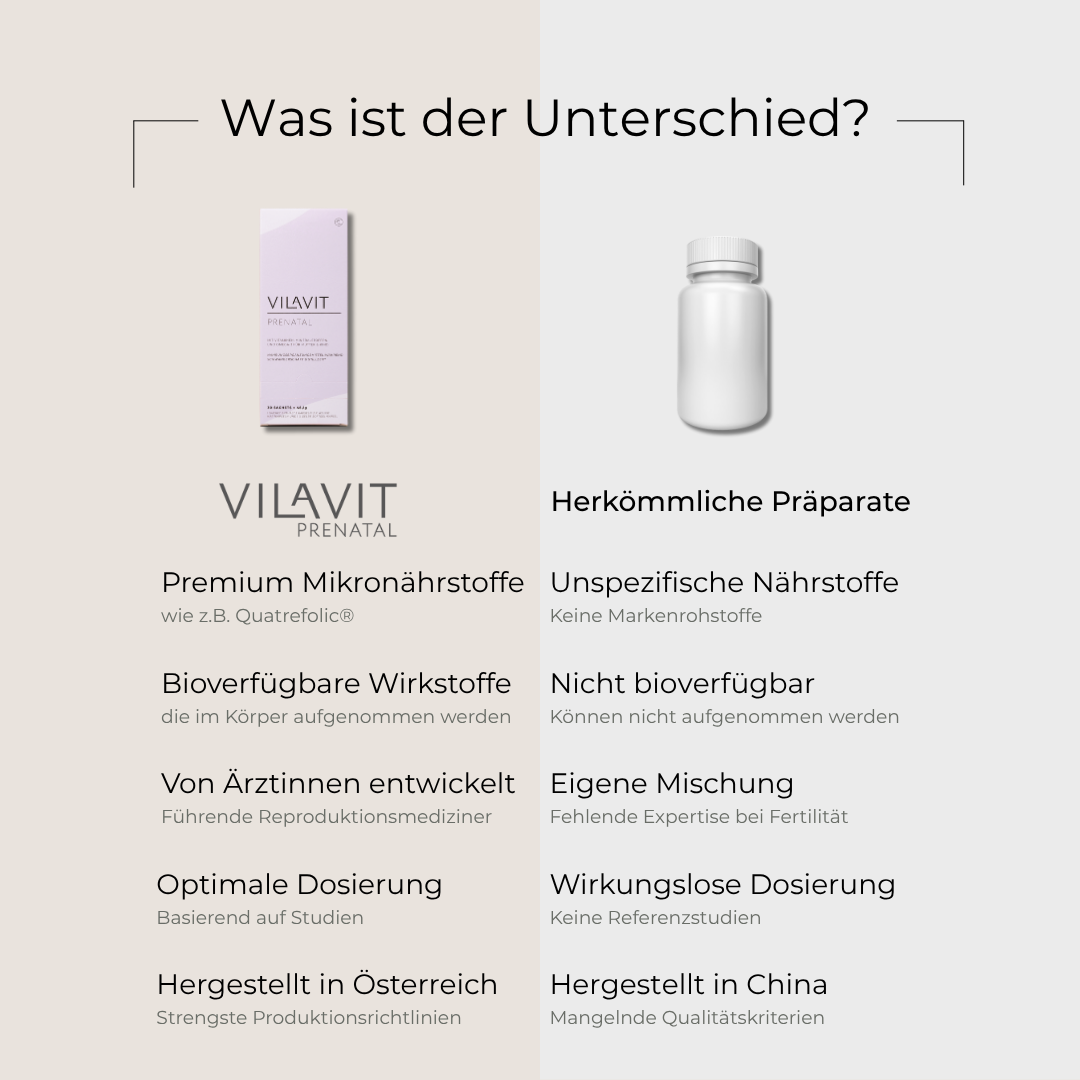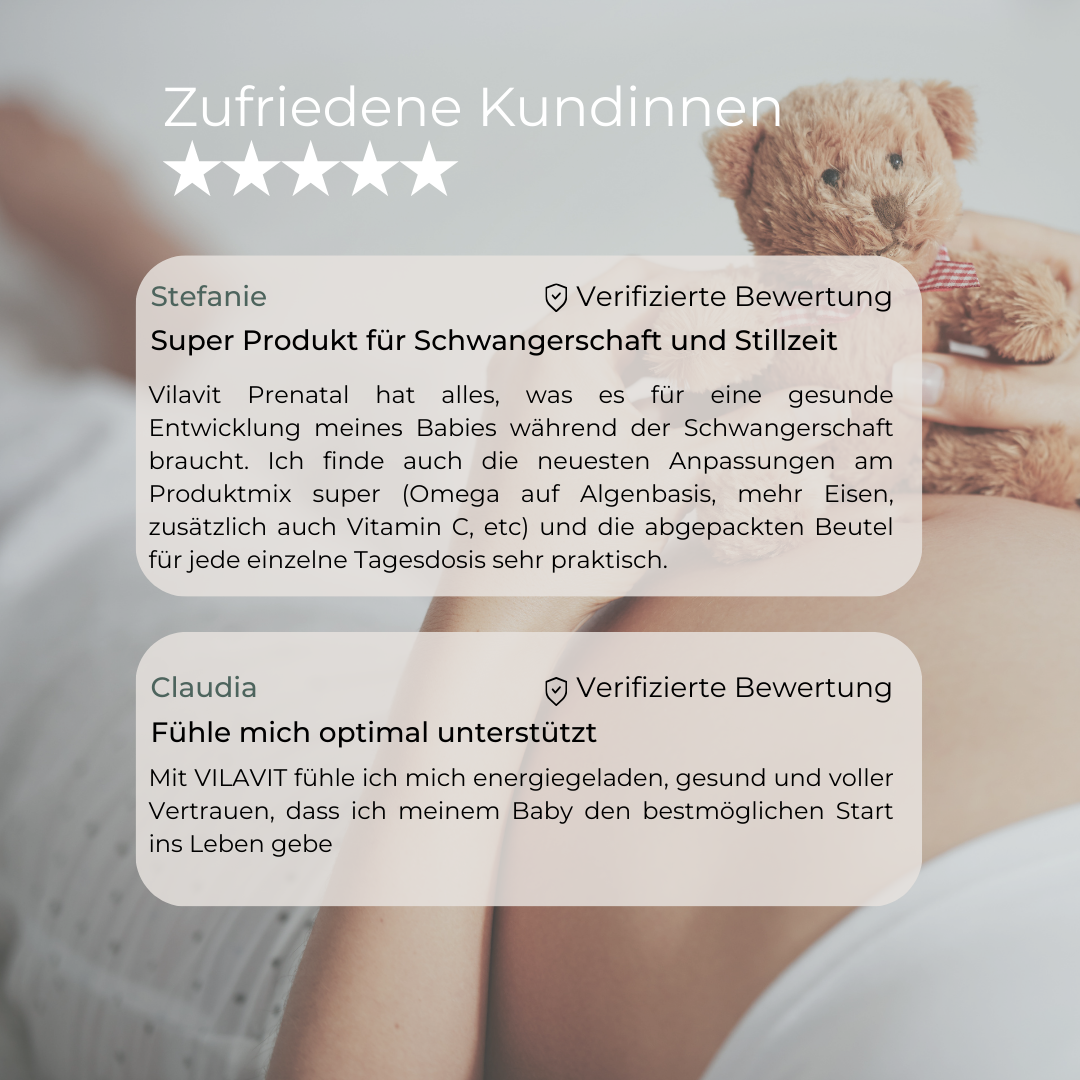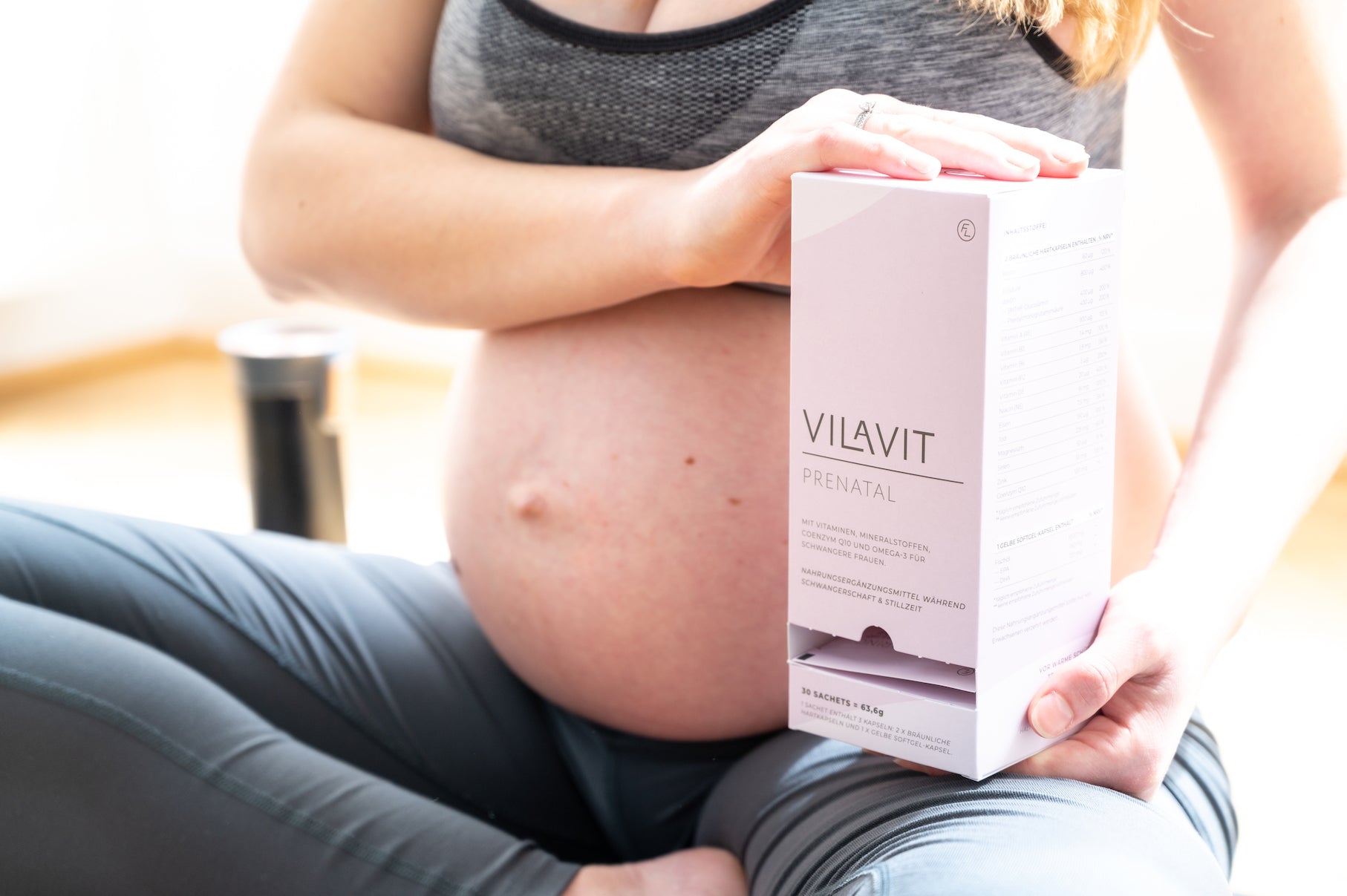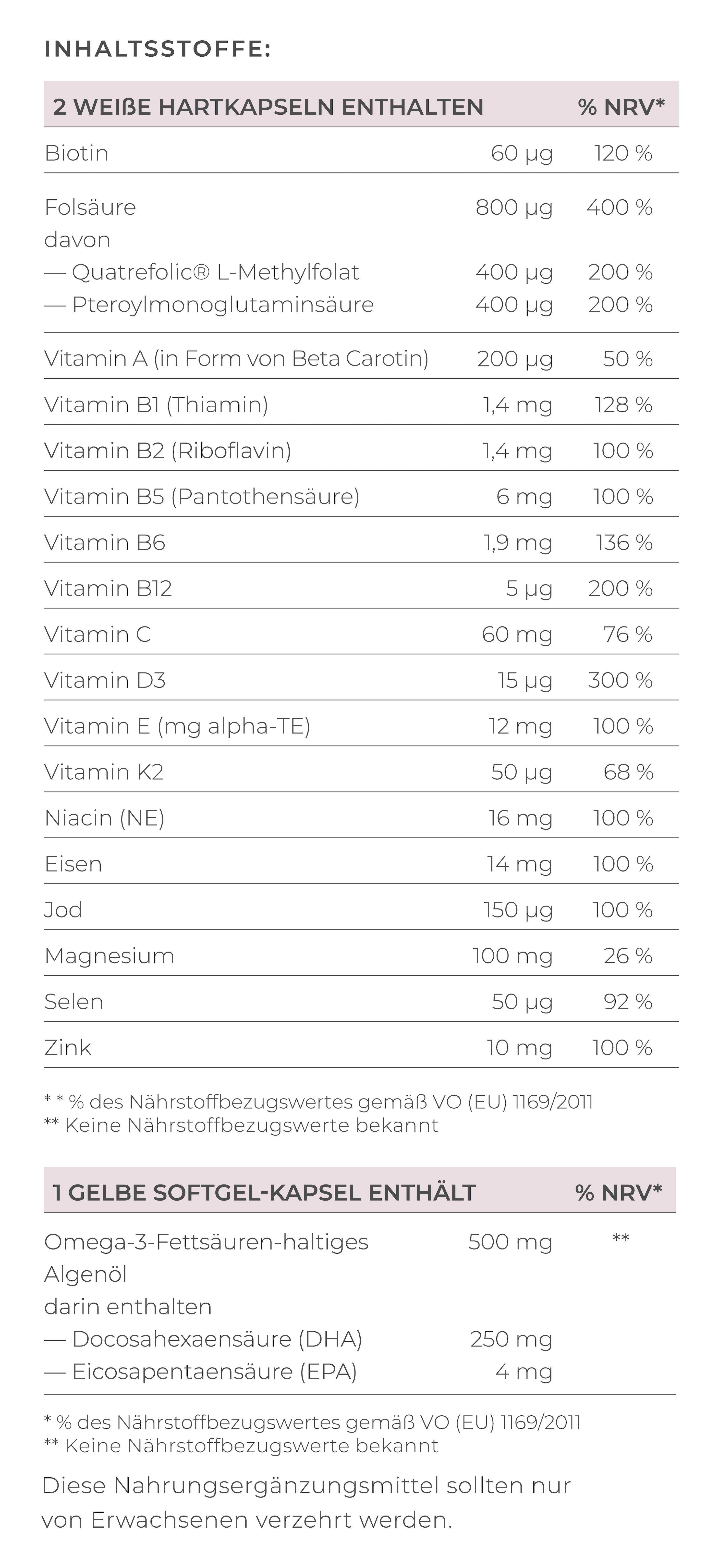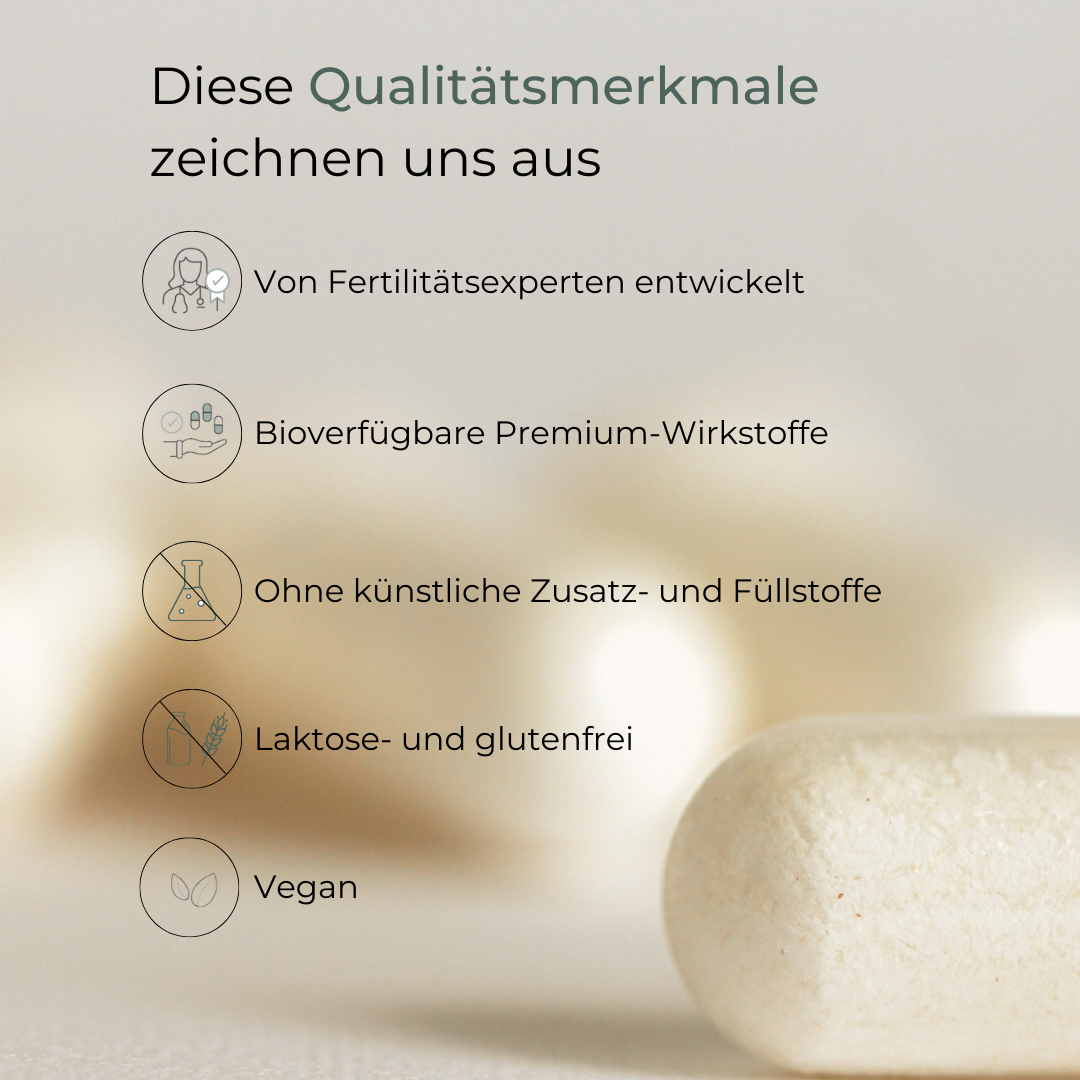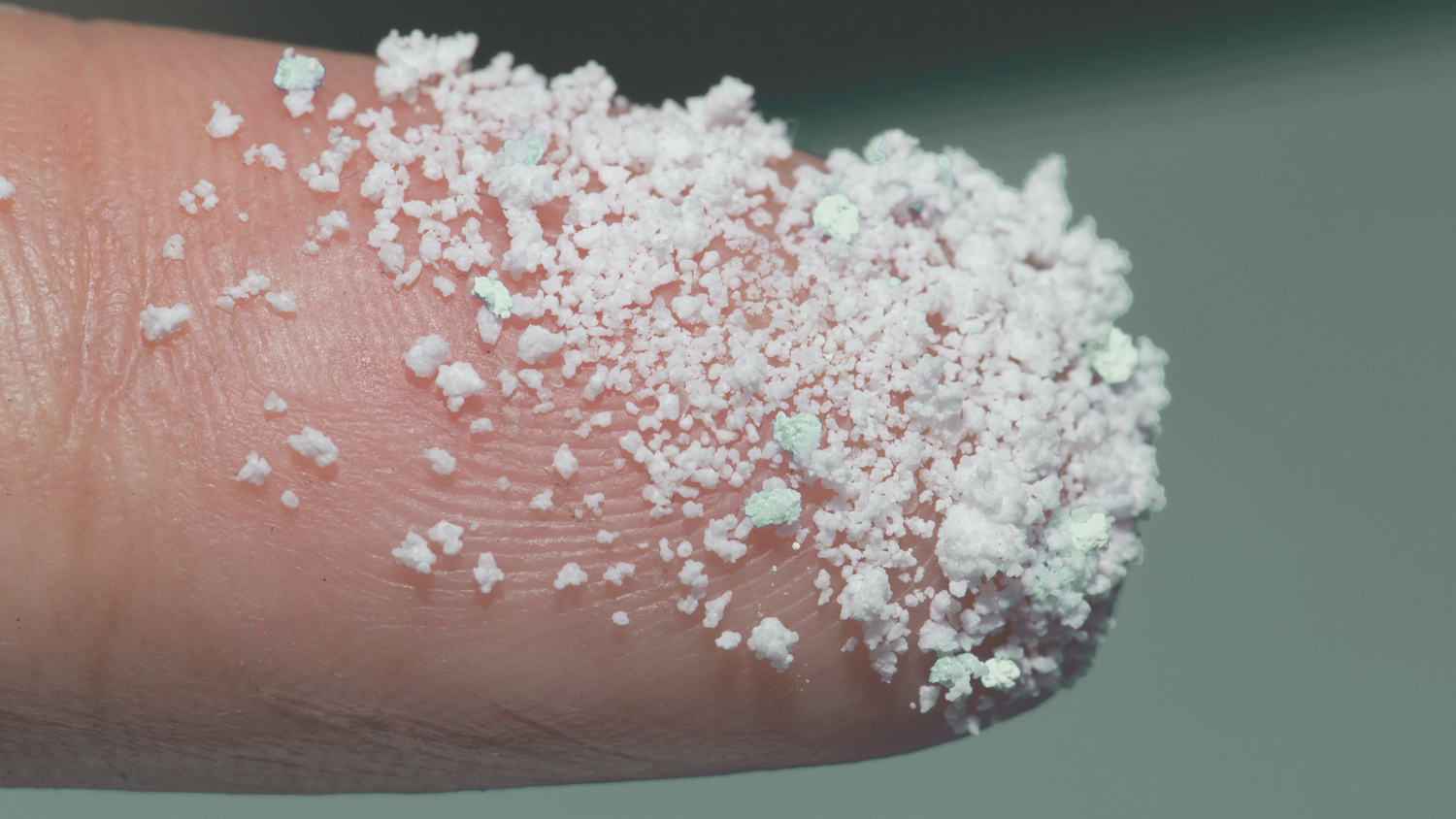Key Points About Nutrition During Pregnancy
-
Energy and nutrient requirements increase during pregnancy.
-
Starting from the second trimester, you need an additional 250-300 kcal per day, increasing to 450-500 kcal per day in the third trimester.
-
Essential nutrients such as folic acid (400 µg daily), iron, omega-3 fatty acids (250 mg DHA), and vitamin D are crucial for a healthy pregnancy.
-
To ensure optimal nutrient intake, consume nutrient-rich foods such as whole grains, legumes, low-fat dairy products, lean meat, and fish.
-
Raw meat, fish, and unpasteurized dairy products should be avoided, as they increase the risk of infections such as listeriosis or toxoplasmosis.
-
Caffeine intake should be limited to a maximum of two cups of coffee per day, while alcohol should be completely avoided throughout pregnancy.
Nutrition during pregnancy plays a crucial role in the health of the mother, the development of the baby, and the risk of certain diseases later in life. A well-balanced diet that meets the unique nutritional needs of pregnancy can reduce complications and provide long-term health benefits for the baby.
Increasing Energy Requirements During Pregnancy
During pregnancy, both energy and nutrient needs increase, as you are not only nourishing yourself but also your developing baby. From the second trimester (starting from the 13th week of pregnancy), you need about 250-300 additional kilocalories per day, which can be fulfilled with healthy snacks like whole grain bread with avocado or natural yogurt with fruit. In the third trimester, the requirement rises to about 450-500 additional kilocalories per day, as your baby grows rapidly and your body requires more energy to prepare for birth. Importantly, pregnancy does not mean eating twice as much but rather focusing on 'better, not more' food choices.
Essential Nutrients for a Healthy Pregnancy
During pregnancy, the need for certain vitamins and minerals increases, including B-group vitamins, antioxidant vitamins A, C, and E, as well as specific minerals such as zinc and iron. Adequate nutrient intake is crucial for fetal development, as deficiencies can lead to complications for both mother and baby during and after pregnancy. Maternal nutrition also significantly impacts the child's risk of developing certain diseases later in life (Moreno-Fernandez, J. et al., 2020). Some nutrients cannot be sufficiently obtained through food alone, making supplementation especially important. All essential pregnancy nutrients, along with strategies to minimize risk factors and support optimal development, are included in VILAVIT Prenatal.
Folic acid
Folic acid is essential for cell division and neural tube development. A deficiency can lead to birth defects such as spina bifida. A daily intake of at least 400 µg of folic acid during pregnancy—and ideally before conception—is recommended (Koletzko, B. et al., 2018).
Iron
Iron deficiency is common during pregnancy. Iron is essential for red blood cell production, placenta formation, and fetal oxygen transport. Studies suggest that adequate iron intake reduces the risk of preterm birth (Mousa, A. et al., 2019).
Omega-3 Fatty Acids
Omega-3 fatty acids are critical for the healthy development of the baby's eyes and brain. Docosahexaenoic acid (DHA) is a particularly valuable long-chain omega-3 fatty acid. A daily intake of at least 250 mg DHA is recommended for optimal pregnancy support. Research indicates that increased omega-3 intake is associated with improved neurological development in newborns (Brown B., et al., 2020).
Vitamin D
Vitamin D plays a vital role in calcium absorption from the gastrointestinal tract and in the baby's bone development. Studies suggest that many pregnant women do not consume enough vitamin D, which may increase the risk of asthma in her child and postpartum depression (Brown, B. et al., 2020).
Recommended Foods During Pregnancy
A balanced diet is crucial for the health of both mother and child. Pregnant women should consume nutrient-rich foods such as whole grains, legumes, low-fat dairy products, lean meat, and fish to ensure an adequate supply of essential nutrients. Dark green leafy vegetables like spinach and broccoli provide important vitamins and minerals, including folic acid and iron, which are essential for fetal development. Omega-3 fatty acids from fatty fish such as salmon and mackerel support brain development and may lower the risk of preterm birth.
Foods to Avoid During Pregnancy
Certain foods should be avoided to minimize infection risks and complications.
Raw Meat and Fish
Avoid raw or undercooked meat and fish, such as carpaccio, beef tartare, or sushi. These foods may contain pathogens like listeria or toxoplasma, which can be dangerous for the unborn baby.
Raw Milk and Unpasteurized Dairy Products
Avoid raw milk and certain soft cheeses, as they may contain harmful bacteria such as listeria, which can lead to severe complications during pregnancy. Instead, choose pasteurized dairy products that are safe for both you and your baby.
Chinine-Containing Beverages
Chinine is found in drinks such as tonic water or bitter lemon. Although refreshing, it should be avoided during pregnancy, as excessive consumption may trigger contractions or affect the baby’s heart rhythm. Opt for other beverages without chinine to stay on the safe side.
Excessive Caffeine Intake
Limit caffeine intake to a maximum of two cups of coffee or four cups of black or green tea per day. Be cautious with beverages like iced tea, energy drinks, and soft drinks, which may also contain caffeine. Studies suggest that excessive caffeine consumption is associated with fetal growth restriction and lower birth weight (Koletzko, B., et al., 2018).
Alcohol
Even small amounts of alcohol can harm the unborn child and lead to severe developmental disorders. There is no safe threshold, so experts recommend avoiding alcohol entirely when trying to conceive. Ideally, alcohol should be eliminated even during pregnancy planning (Koletzko, B. et al., 2018).
Conclusion
A balanced diet during pregnancy is crucial for maternal and fetal health. Scientific studies confirm that adequate intake of folic acid, iron, omega-3 fatty acids, and vitamin D is essential, while certain foods such as raw meat, caffeine, and alcohol should be avoided. The long-term effects of maternal nutrition highlight the importance of mindful eating during pregnancy.
FAQ
Is a vegetarian or vegan diet possible during pregnancy?
Yes, but special attention should be paid to sufficient intake of vitamin B12, iron, omega-3 fatty acids, and protein. A nutritional consultation can help prevent deficiencies.
How does calorie intake change during pregnancy?
In the first trimester, calorie needs remain almost the same. In the second trimester, they increase by about 250-300 kcal per day, and in the third trimester, by about 450-500 kcal per day.
Can I drink coffee?
Caffeine consumption should be limited during pregnancy, but about two cups of coffee may be safe in consultation with your doctor.
What impact does an unbalanced diet have on the baby?
An unbalanced diet can increase the risk of preterm birth, low birth weight, and later metabolic disorders in the child.
Are there specific foods that help alleviate nausea in the first trimester?
Unfortunately, there is no miracle cure for nausea. However, reports from affected women suggest that consuming ginger, dry foods like crispbread or oats, and staying hydrated can help reduce nausea. Eating several small meals instead of large ones may also be beneficial.
How much water should I drink daily?
At least two liters of water per day are recommended to support circulation and prevent pregnancy-related issues such as constipation.
References
1. Moreno-Fernandez, J., Ochoa, J. J., Lopez-Frias, M., & Diaz-Castro, J. (2020). Impact of Early Nutrition, Physical Activity and Sleep on the Fetal Programming of Disease in the Pregnancy: A Narrative Review. Nutrients, 12(12), 3900. https://doi.org/10.3390/nu12123900
2. Koletzko, B., Cremer, M., Flothkötter, M., Graf, C., Hauner, H., Hellmers, C., Kersting, M., Krawinkel, M., Przyrembel, H., Röbl-Mathieu, M., Schiffner, U., Vetter, K., Weißenborn, A., & Wöckel, A. (2018). Diet and Lifestyle Before and During Pregnancy - Practical Recommendations of the Germany-wide Healthy Start - Young Family Network. Geburtshilfe und Frauenheilkunde, 78(12), 1262–1282. https://doi.org/10.1055/a-0713-1058
3. Mousa, A., Naqash, A., & Lim, S. (2019). Macronutrient and Micronutrient Intake during Pregnancy: An Overview of Recent Evidence. Nutrients, 11(2), 443. https://doi.org/10.3390/nu11020443
4. Brown, B., & Wright, C. (2020). Safety and efficacy of supplements in pregnancy. Nutrition reviews, 78(10), 813–826. https://doi.org/10.1093/nutrit/nuz101


